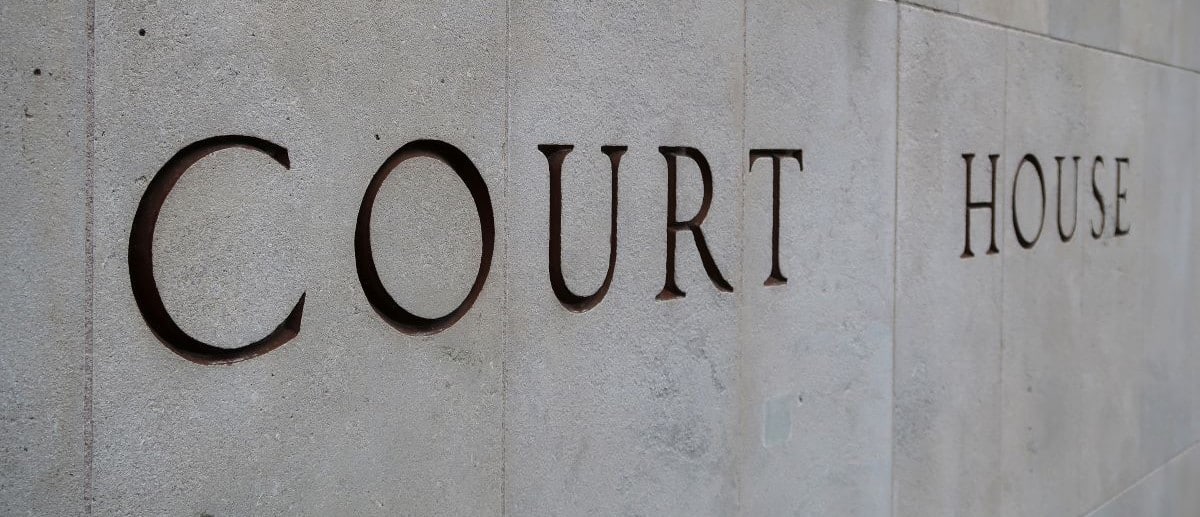
The Ontario Superior Court has ruled in favour of iGaming Ontario (iGO) and the Attorney General of Ontario in its legal dispute with the Mohawk Council of Kahnawa:ke.
Superior Court Justice Lisa Brownstone delivered the verdict Monday, finding that iGO is, in fact, conducting and managing igaming within Ontario, as it pertains to various sections of the Criminal Code of Canada.
After two days of hearings in February and a thorough legislative review, Justice Brownstone outlined her reasons for judgment in a 26-page document that answered questions as it pertains to the proper interpretation of “conduct and manage” as outlined in Section 207 (1) of the Criminal Code.
From the ruling:
In implementing its lottery scheme in accordance with s. 207(1)(a), the province is permitted to engage private entities in an operational capacity. The province must not, however, delegate to such entities the conduct and management of the scheme. In order to be conducting and managing a lottery scheme itself, the province must exert a sufficient level of control to maintain its position as the “operating mind” of the lottery. It must do so in a manner that protects public safety and fosters responsible gaming. It must do more than distantly oversee or regulate the scheme; the province must exert direction and control over it. It need not be involved in granular operations, but it needs to be far more than a “hands-off” licensor.
I do not accept the Council’s argument that many of these controls are illusory or serve a different purpose (for example in the case of the data requirements, compliance with privacy legislation). The controls are detailed and extensive. They show that iGO retains ultimate decision-making authority on a breadth of issues central to the igaming scheme. It retains a high degree of control over the operators in a wide array of the igaming scheme’s aspects. These are markers of who is in control of the igaming scheme, and who is its operating mind. That operating mind is iGO.
[Operators] are not able to decide which games are eligible. They are restricted to using their data only in connection with the use of their website or with iGO’s preapproval. They are limited in their ability to subcontract. They are not free to determine their own advertising methods or materials. They may not freely manage issues of customer care or dispute resolution. They must adhere to requirements related to responsible gambling, good governance, game integrity, and player awareness.
iGaming Ontario welcomed the court’s decision and released the following statement from Executive Director Martha Otton, on Monday afternoon:
“We have always been confident in our model and are pleased that the court has ruled in our favour, and that Ontarians can continue to play with confidence in our regulated igaming market. Ontario’s model meets the requirements and contributes to the public good by protecting players, their data and their funds while helping to fund priority public services in Ontario, and bringing well-paid, high-tech jobs and economic development to Ontario.”
Legal process took nearly two years
The Mohawk Council of Kahnawa:ke (MCK) filed a Notice of Application with the court in November 2022 intending to abolish Ontario’s new regulated igaming market which was established in April 2022. The Council claimed that iGO, which was formed in July 2021 as a subsidiary of the Alcohol and Gaming Commission of Ontario (AGCO), was not “conducting or managing” the online gambling sites of private operators, and allowing operators to “conduct and manage themselves,” subject to the payment of a portion of their revenues (roughly 20%) to the Ontario government.
The Council said it had “facilitated, conducted, and safely regulated gaming activities on behalf of the Mohawks of Kahnawà:ke for decades, and this new regime ignores their expertise in the gaming sector, and will result in the loss of significant revenue to the community of Kahnawà:ke.”
MCK has yet to file a statement regarding the court’s decision.
Ontario’s regulated igaming market thriving
Ontarians wagered approximately $63 billion and the regulated igaming market in the province produced $2.4 billion in total gaming revenue during the last fiscal year (April 1, 2023-March 31, 2024), representing a 78% increase year-over-year in total wagers and a 72% YoY increase in total gaming revenue.
As of March 31, 47 operators were offering 77 online gaming websites. Over 1.3 million player accounts were active during Q4 (Jan. 1 – March 31) and the monthly spend per active player account was $263.
Since its inception on April 4, 2022, Ontario’s igaming market has generated roughly $98.74 billion in total wagers and $3.845 billion in total gaming revenue while showing growth each quarter. It’s important to note these figures don’t include revenue from the Ontario Lottery and Gaming Corporation and its online gambling products.
With the legal challenge now in the rearview mirror, Ontario’s regulated igaming market will continue to operate as usual.
| Quarter | Total Wagers | Total Gaming Revenue | Operators | Active Player Accounts |
|---|---|---|---|---|
| Q1 2022/23 | $4.07B | $162M | 18 | 492K |
| Q2 2022/23 | $6.04B | $267M | 24 | 628K |
| Q3 2022/23 | $11.53B | $457M | 36 | 910K |
| Q4 2022/23 | $13.9B | $526M | 44 | 1.1M |
| Q1 2023/24 | $14B | $545M | 46 | 920K |
| Q2 2023/24 | $14.2B | $540M | 47 | 943K |
| Q3 2023/24 | $17.2B | $658M | 49 | 1.2M |
| Q4 2023/24 | $17.8 | $690M | 47 | 1.3M |
| Total since launch: | $98.74B | $3.845B |